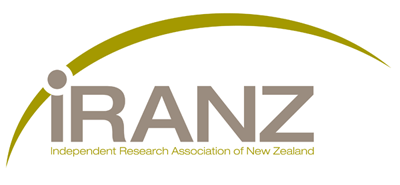Podcasts and audio
Podcasts and radio interviews by New Zealand's Independent Research Organisations
Podcasts and radio archives: 2023 | 2022 | 2021 | 2020 | 2019 | 2018
Podcasts and audio
BRANZ: Clause H1 unpacked
13 November 2024: In this Master Builders Elevate podcast, Dr Chris Litten, General Manager of Research at BRANZ, unpacks the recent changes to Clause H1 of New Zealand's Building Code. Chris dives into the new energy efficiency standards, detailing updates in insulation, thermal performance, and ventilation requirements, and the practical challenges these pose for builders.
Mātai: The advances in MRI coming out of Gisborne
7 November 2024: RNZ's Claire Concannon, for Our Changing World, recently visited Mātai Medical Research Institute to report on their research. She interviewed Research Director and Chief Executive Dr Samantha Holdsworth.
Cawthron: Fresh FM's Mending Our Desert in the Bay - Ep 3
28 October 2024: In this series of eight 30 minute programmes, Craig Prichard from the Cawthron Institute talks with scientists and marine professionals about the work they are doing, and how others can help around the Top of the South to mend what many regard as the watery desert in Te Tai-o-Aorere, Mohua, and the Sounds.
Cawthron: Fresh FM's Mending Our Desert in the Bay - Ep 2
21 October 2024: In this series of eight 30 minute programmes, Craig Prichard from the Cawthron Institute talks with scientists and marine professionals about the work they are doing. Cawthron Science Capability manager Chris Cornelisen discusses marine restoration options and monitoring.
Cawthron: Fresh FM's Mending Our Desert in the Bay - Ep 1
14 October 2024: Cawthron Fresh water marine ecologist Rob Holmes talks mountains to sea and sea to mountain interaction. Particularly he discusses the origin and effects of the sediment as a pollutant for freshwater and marine life, and what we can do address it. And he talks through new work looking at how marine species, Inanga particularly, contribute to river and steam abundance.
HERA: Ep.113 - A circular rethink for construction
08 October 2024: In this episode of Stirring the Pot HERA talks with Michail Karpenko, Kaveh Andisheh, and Holger Heinzel on the transformative concept of circular design in the context of Construction 4.0.
HERA: Ep.112 - Tactics to achieve low carbon design
24 September 2024: In this episode of Stirring the Pot HERA talks with Associate Professor Helena Gervasio, from the University of Coimbra in Portugal. Together with HERA Structural Systems GM Kaveh Andisheh they delve into the crucial role of sustainability in construction.
HERA: Ep.108 – Skill set reset: Vocational education at a crossroad
31 July 2024: In this episode of Stirring the Pot HERA talks with Phil Alexander-Crawford. As CEO at Hanga Aro Rau Workforce Development Council (WDC), Phil leads the discussion on transforming vocational education, forging strong industry partnerships, and embracing workforce diversity.
HERA: Ep.107 – The ‘smart shift’ in construction
17 July 2024: In this episode of Stirring the Pot HERA talks with Dr Alice Chang-Richards, Dr Yuqian Lu, and Dr Yang Zou. All based out of the University of Auckland, together they make up the research team focused on Smart Construction in the HERA led and Endeavour Funded Construction 4.0 research via MBIE: “Developing a Construction 4.0 transformation of Aotearoa New Zealand’s construction sector,”
Malgahan:RNZ - Targeting bacteria, and health inequities
20 June 2024: Malaghan's Dr Tom Mules and Kate Maclean speak to Claire Concannon at RNZ's Our Changing World about their clinical research tackling health disparities in stomach cancer through identifying and targeting a key bacteria associated with this disease.
Motu: "Immensely frustrating": What is the impact of Long Covid?
16 April 2024: Motu Fellow Jaimie Monk has suffered from long covid. She spoke with Kerre Woodham on NewstalkZB about the symptoms and balancing work in the context of changes to the Jobseeker benefit.
Lincoln Agritech: Machine learning in agriculture
16 February 2024: In this episode of Plains FM podcast Duct Tape and Flip Flops, Machine Vision Principal Scientist Jaco Fourie talks to 'Josh and Josh' about how machine learning and AI can bring advances in our primary industries.
Cawthron: Oyster vaccine set to save multi-million dollar industry
15 February 2024: Research is underway to combat a virus that's devastated New Zealand's multimillion-dollar Pacific oyster industry. Nelson's Cawthron Institute has been granted $1 million over three years to develop a vaccine for Pacific oyster mortality syndrome, also known as Poms.
HERA: Ep.104 – Pioneering seismic research in Aotearoa
31 January 2024: In this episode of Stirring the Pot HERA talks with Shahab Ramhormozian. Shahab is an Associate Professor in Structural and Earthquake Engineering at Auckland University of Technology. Join HERA as they chat with him about being awarded the INN0V8 impact industry award at the 2023 HERA Future Forum Industry Awards.
